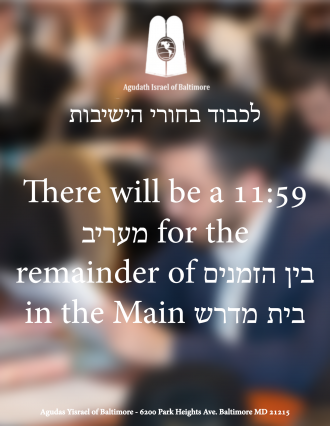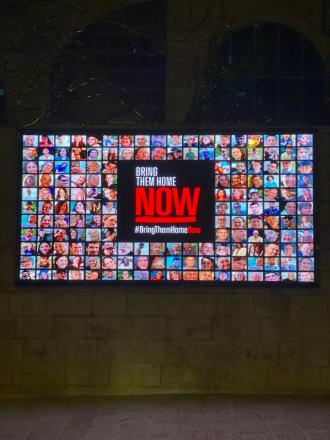An interfaith group from Bahrain is visiting Israel amid turmoil there over U.S. President Donald Trump’s decision to recognize Jerusalem as the capital, angering some in the island nation who support the Palestinians.
The group’s trip comes after two U.S.-based rabbis have said that Bahrain’s King Hamad bin Isa Al Khalifa thinks that the longtime boycott of Israel by Arab countries should end.
While organizers repeatedly described the trip as nonpolitical and unrelated to its government’s policies, the timing comes as Bahrain increasingly looks like the test case for other Gulf Arab nations in seeing what could happen if they recognize Israel.
A group of 30 people from Bahrain, including Buddhists, Christians, Hindus, Jews and Muslims, flew to Israel for the event. They plan to visit universities and talk to officials there about topics of common interest, said Rabbi Abraham Cooper of the Los Angeles-based Simon Wiesenthal Center.
“The goal here is to multiply the interactions and contacts among people doing similar things in the overall region,” the rabbi told The Associated Press on Sunday. “Until now, there was absolutely no chance of having contact.”
King Hamad hosted Cooper and another rabbi in February from Simon Wiesenthal Center. In September, King Hamad’s son, Prince Nasser bin Hamad Al Khalifa, went to the center to promote a religious tolerance declaration signed by the king.
It was at that September event word spread of King Hamad’s comments about wanting the Arab boycott of Israel to end.
That goes against decades of Arab opposition to Israel, which at its heart remains the demand for the creation of a Palestinian state and Israel’s withdrawal from “occupied territory”. Only Egypt and Jordan have made a separate peace with Israel.
However in recent years, Sunni Arab states have found themselves on the same side as Israel when confronting Shiite power Iran following its nuclear deal with world powers.
Bahrain, an island nation off the coast of Saudi Arabia connected by a 25-kilometer (15.5-mile) causeway, long has been known as more liberal than its ultraconservative neighbor. Its bars and night-life attract cross-border traffic, as well as sailors based there with the U.S. Navy’s 5th Fleet.
The island also hosts a small Jewish community, whose presence occasionally makes waves. An online video last year from Bahrain during Hanukkah caused a minor stir when it showed yarmulke-wearing Jews dancing with Arabs in traditional robes and kaffiyeh headdresses.
“Everyone in Bahrain has total religious freedom,” said Betsy Mathieson of the This is Bahrain campaign group, which promotes the island. “They are free to carry out their religious rites and worship in safety and security. It’s not a problem for anyone in Bahrain.”
However, that belies the findings of an official investigation conducted after Bahrain put down its 2011 Arab Spring protests with the help of Saudi Arabia and the United Arab Emirates. That investigation found the government demolished 30 Shiite religious structures following the demonstrations, ranging from mosques to meeting halls and shrines.
The report noted that while many lacked proper permits, the timing of their destruction “would be perceived as a collective punishment.” Activists put the number of destroyed Shiite structures even higher.
In the time since, activists, Shiite leaders and politicians have found themselves ensnared in a wide-ranging crackdown on all dissent in Bahrain. In August, U.S. Secretary of State Rex Tillerson said the island nation “must stop discriminating against the Shiite communities.”
“I believe that the government of Bahrain has failed to follow a just and inclusive policy in its relationship with the majority of its citizens,” Sheikh Maytham al-Salman, a Shiite cleric from Bahrain, told the AP. “PR campaigns by the government of Bahrain … have failed to convince the international community that it respects the religious freedom rights of the majority of its citizens.”
As news of the Bahraini delegation in Israel spread, many took to social media in anger Monday. Already, many had been sending messages of support to Palestinians over Trump’s Jerusalem decision.
“I reject this normalization of relations with the usurping enemy’s entity,” Ebrahim Sharif, a secularist politician who was once a leader of the Waad political party, wrote on Twitter. “I consider this visit by the delegation a betrayal of the Palestinian people.”

















